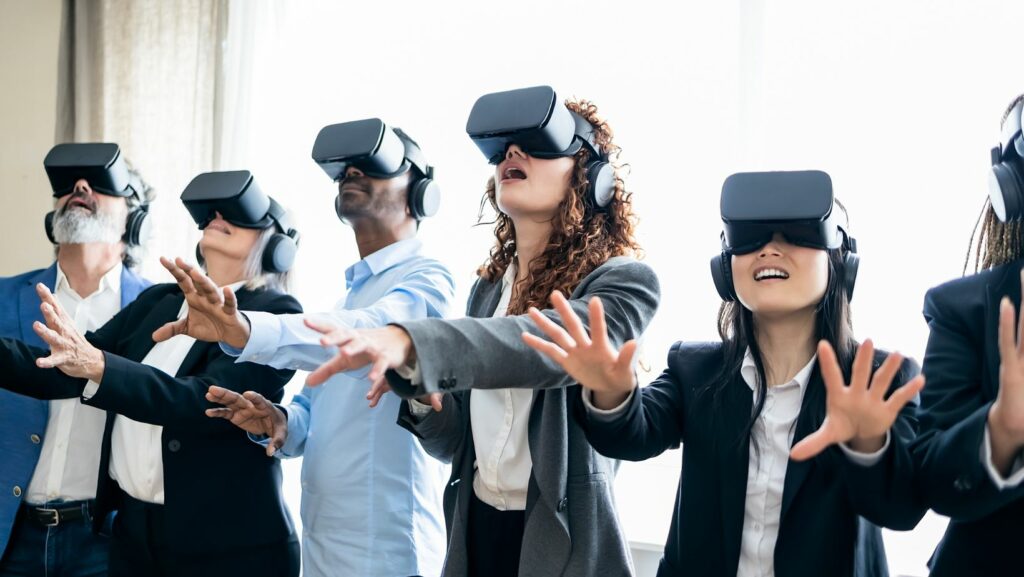Stepping into the world of virtual reality is like entering a realm where the boundaries of imagination and technology blur seamlessly. As an avid explorer of cutting-edge innovations, I’ve delved into the realm of virtual reality services to uncover the transformative experiences they offer.
In this article, I’ll guide you through the diverse array of virtual reality services available today, shedding light on how businesses and individuals can harness this technology to revolutionize their operations and experiences.
Virtual Reality Services
The Evolution of VR Technology
Exploring the evolution of VR technology, I delve into how this innovative field has rapidly progressed over the years. From the early days of bulky headsets and limited capabilities, VR technology has undergone significant advancements. Modern VR headsets offer high-resolution displays, precise motion tracking, and immersive audio, providing users with truly captivating experiences.
As I navigate through the landscape of VR technology, it becomes evident that continuous research and development have propelled this sector forward. Innovations in hardware and software have enhanced the realism and interactivity of virtual environments, making them more engaging and lifelike. With the integration of cutting-edge technologies like haptic feedback and eye-tracking systems, VR experiences are becoming increasingly sophisticated and intuitive.
Industries Embracing VR Services

In discussing the industries embracing VR services, I highlight the diverse sectors that have incorporated this technology into their operations. From entertainment and gaming to healthcare and education, VR services are revolutionizing how businesses and organizations engage with their audiences.
In the entertainment industry, VR has opened up new possibilities for immersive storytelling and interactive experiences. Gaming enthusiasts can now enjoy virtual worlds that blur the line between fantasy and reality, providing a level of engagement never before possible.
Key Players in the Virtual Reality Market
Major VR Hardware Providers
In the dynamic virtual reality industry, several key players dominate the hardware sector. Names like Oculus, HTC, and Sony stand out as leading providers of VR headsets and equipment. Oculus, owned by Facebook, offers the popular Oculus Rift series, known for its high-quality displays and immersive experiences. HTC’s Vive series excels in delivering room-scale VR experiences, while Sony’s PlayStation VR brings virtual reality to console gamers, expanding the reach of VR technology.
Innovative VR Software Developers
When it comes to innovative VR software development, companies like Unity Technologies, Unreal Engine, and Mozilla are at the forefront. Unity Technologies provides a robust platform for creating interactive VR applications with advanced features and compatibility across multiple devices. Unreal Engine, developed by Epic Games, is acclaimed for its stunning graphics and realistic simulations, making it a top choice for game developers and immersive experiences. Mozilla’s WebVR initiative focuses on bringing virtual reality experiences to the web, opening up new possibilities for online interactions and content delivery in VR environments.
Understanding Different Virtual Reality Services
Entertainment and Gaming
In the realm of entertainment and gaming, virtual reality offers immersive experiences that transport users to fantastical worlds where they can interact with environments and characters in unprecedented ways. Companies like Oculus, known for their groundbreaking VR headsets, have revolutionized gaming by providing realistic simulations that blur the lines between the virtual and physical realms.
Education and Training

Virtual reality has made significant inroads into the education and training sectors, enhancing learning experiences through interactive simulations and immersive environments. Institutions and organizations are adopting VR technology to offer hands-on training in fields such as medicine, engineering, and aviation, where practical experience is crucial. By enabling students to practice complex procedures in a risk-free virtual setting, VR is reshaping traditional learning methods and empowering individuals to acquire skills in a more engaging and effective manner.
Real Estate and Architecture
In the realm of real estate and architecture, virtual reality is transforming the way properties are showcased and designed. Through VR walkthroughs and 3D visualizations, potential buyers and investors can explore properties remotely as if they were physically present, saving time and resources. Architects and designers leverage VR tools to create virtual prototypes and experiment with different layouts and designs, streamlining the design process and enhancing collaboration with clients. The use of VR in real estate and architecture not only enhances visualization but also facilitates better decision-making and project communication.

